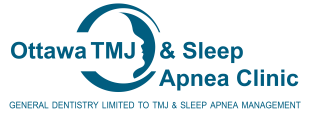Sleep apnea and TMJ treatments in Ottawa, ON
Sleep Apnea’s Impact on Your Relationship
If you’ve been diagnosed with sleep apnea, you may already be aware of the negative effects it can have on your overall health and well-being. Unfortunately, sleep apnea can affect more than just your sleep. Your relationships with your loved ones, especially bed partners, can be harmed by the effects of your sleep apnea.
Read on to learn about the impact that sleep apnea can have on the health of your relationships and why treatment is so important.
How Sleep Apnea Affects Your Partner’s Sleep
Some of the most common symptoms of sleep apnea are snoring, irregular breathing during sleep, and waking up gasping during the night. Not only can the need to catch your breath make it difficult for you to sleep soundly, but the noise is also likely to disrupt your bed partner’s sleep.
When your partner has to routinely endure sleep deprivation due to the frequent interruptions caused by your sleep apnea, they may start sleeping in a separate room, or even a separate home, to get the rest they need. Your partner may try wearing headphones to block out the noise. You might try sleeping on your side, wearing nasal strips, or taking allergy medication to control your symptoms. However, these methods may or may not work.
The strain sleep apnea puts on your relationship could ruin it. There’s a reason snoring is cited as the third most common cause of divorce and separation. Additionally, when your partner can’t sleep at night, they’re likely to start showing many of the same symptoms as you during the day.
Sleep Apnea Can Affect Your Relationships During The Day
Sleep apnea can have effects on your mood and behavior while you’re awake, including:
- Irritability
- Depression
- Daytime sleepiness
- Difficulty paying attention
- Fatigue, low energy
- Personality changes
- Decreased libido

Any of these changes in you or your bed partner can make maintaining a romantic relationship difficult. However, even though your sleep apnea may occur mostly at night, its impact can last all day and extend far beyond your partners. The changes in your mood, demeanor, and your ability of focus can make maintaining relationships of all kinds a challenge.
Your relationships with family, friends, coworkers, and every person you interact with can all suffer due to sleep apnea symptoms. When you’re depressed, unfocused, or irritable, people may be less likely to want to interact with you. You’re also likely to be more prone to making mistakes, saying and doing things you’ll later regret.
What’s more, it can be difficult to recognize how incidents of moodiness or fatigue stem from poor quality sleep in the nights before. Fortunately, treating your sleep apnea can benefit relationships across your personal and professional life.
Relationship Benefits of Sleep Apnea Treatment

After undergoing treatment for sleep apnea, you may become more:
- Patient
- Positive
- Capable of heightened mental performance
- Engaged and aware during conversations
- Physically fit for social interactions and physical intimacy
- Attractive to your partners
- Capable of feeling your best around friends, family, and loved ones
Patients who treat their sleep apnea often see improvement in the health of all of their relationships and day-to-day social interactions. Along with an improved mood, treating your sleep apnea can heighten your mental performance. Improved concentration from quality sleep keeps you sharper and more engaged in professional relationships, from pleasant conversations to challenges in the workplace.
Physical symptoms of sleep apnea can also affect your relationships. It can be difficult to interact positively with the people in your life if headaches related to sleep apnea are a regular occurrence. Weight gain and erectile dysfunction are frequently linked to sleep apnea and can present difficulties for healthy intimacy. Heartburn, another symptom of sleep apnea, can disrupt social situations and prevent you from feeling your best with friends, loved ones, and colleagues.
Don’t let these symptoms and others keep you from healthy, successful relationships. Treatment can address your sleep apnea and show you what a difference quality sleep makes in all areas of your life.
Frequently Asked Questions
Healthy relationships are built on honest communication. Talk to your partner about whether you snore and gasp for air during sleep. It’s possible that your condition has been a greater disturbance than you’re aware of. If intimacy has been a problem, your experience could be linked to sleep apnea-related fatigue, weight gain, or reduced libido.
Discuss your mood and behavior with trusted friends and loved ones. Give thought to the possibility that your attitude is being held back by symptoms of poor-quality sleep.
If you haven’t already, undergo a sleep study and see if sleep apnea is keeping you from the restful sleep you deserve. You’ll be amazed by what a difference treating your condition can make and what a relief it is to stop coping with the symptoms.
Treating your sleep apnea can improve your disposition if irritability and moodiness are contributing to disagreements in your romantic relationship. Instead of trying to ignore your snoring, treating the underlying cause can improve the quality of sleep for you and your partner.
Many patients who experience reduced libido or erectile dysfunction can improve their condition by treating their sleep apnea. Healthy intimacy can benefit from treating the full spectrum of symptoms caused by sleep apnea — you’ll notice benefits to your mental, emotional, and physical health from appropriate care.
For most couples, the noise from a CPAP machine isn’t a significant disturbance, and patients greatly prefer it to the sound of snoring and gasping for air at night. However, silent alternatives like oral appliances are available for a more discreet treatment option. Talk to Dr. Dahan about oral appliance therapy and enjoy comfort and quiet while maintaining a healthy flow of air to your lungs.
According to Sleep Medicine Reviews, obstructive sleep apnea is more common in men. There’s evidence to suggest that women are commonly underdiagnosed because their symptoms sometimes manifest differently, as depression and insomnia, or their snoring is quieter and goes unnoticed.
Pregnant women are also more prone to sleep apnea. According to BMJ (the British Medical Journal), when women are pregnant, they see an increase in OSA rates by as much as 26 percent by the third trimester.
No matter what your symptoms are, you should contact our Ottawa office and schedule a consultation with Dr. Dahan to receive an accurate diagnosis and effective treatment.
Treat Your Sleep Apnea, Support Your Relationships
Sleep apnea doesn’t have to be a burden on your health and happiness. Get the care you need to manage your symptoms and see the benefits that quality sleep can bring to your relationships. Take the first step and contact our Ottawa office to schedule a consultation with Dr. Dahan by calling (613) 454-1854. You can also fill out our contact form and a friendly staff member will get back to you shortly.
